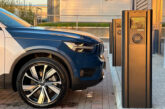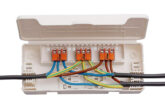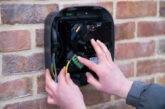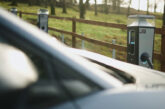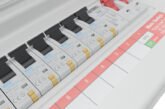
Ali Khan, EVC Business Development Manager at Vestel, highlights the growing EV opportunity for electricians and electrical contractors.
In the rapidly evolving automotive landscape of the UK, the surge in hybrid and fully electric vehicles (EVs) is unmistakable. With battery EVs and full hybrid EVs now accounting for a whopping 31% of new car sales (SMMT data), the seismic shift towards electric transport demands a complete rethink of how we fuel our cars and vans, offering electrical installers and contractors arguably the biggest business opportunity since Edison had his lightbulb moment.
Range anxiety is cited as the number one factor putting new car customers off buying EVs, with many stating they’re waiting for charging infrastructure to catch up. Yet this is an outdated concept, born of more than a century of refuelling vehicles at petrol stations, motorway services, and more recently supermarkets.
This disparity has brought to light a crucial issue: these locations, with their limited space, are ill-equipped to cater to the extended time required to recharge an EV compared to a quick petrol or diesel top-up. This challenge is reshaping our approach to vehicle refuelling, steering us towards a future where destination charging becomes the norm.
The final ‘destination’
Destination charging fundamentally alters the concept of refuelling. It involves charging vehicles at home – if and only if it is practical – or more likely at the end user’s daily destination – work, the train station car park, retail parks, public facilities and businesses both big and small that are handily distributed almost everywhere in the UK.
The widespread installation of EV chargers in these locations is critical for developing a comprehensive and accessible charging infrastructure, thereby opening a vast landscape of opportunities for electrical contractors in the upcoming decade and beyond.
Moreover, there are very compelling reasons why business owners and councils – anywhere there is a destination and a car park – should invest in installing one or more small EV chargers for customers, suppliers, their own fleet of vehicles or simply local residents.
For example, retailers with customer parking facilities are in an enviable position to offer AC chargers for customer use. These can serve as a complimentary service for loyal customers, a benefit tied to purchase incentives, or even a source of direct revenue from commercial charging. This enhances the retailer’s brand image by showcasing a commitment to sustainability, increases the time customers spend in-store and offers a potential 24/7 low-maintenance revenue opportunity.
For non-retail businesses, providing chargers as an employee perk, either free or subsidised, will be increasingly seen as a ‘nice to have’ benefit. For businesses with trade customers, such as electrical contractors visiting an electrical wholesaler, subsided or loyalty-based charging will be a huge incentive for those customers using electric vans. The incentive could be as little as charging at ‘cost’ which is often close to half the price per kWh of commercial charge points – so costs the business nothing.
The same electrical wholesaler can charge non-customers and passers-by at commercial rates for charging, making up to 30-40p per kWh per hour. That will be seen as sustainability positive, building goodwill locally by offering 24/7 local charging access to nearby residents. That applies overnight and weekends as much as it does throughout the working week, creating a sustainable revenue stream, even when the business is closed. With chargers offering credit card payments and RFID card access, separating charge rates between customers and passers-by is simply a matter of how the system is configured.
Catering to small business requirements
The notion that these sophisticated EV charging solutions are the sole preserve of larger enterprises is a misconception. Companies like Vestel, renowned for its expertise in this field, offer models like the European-made EVC04 and EVC10 that are tailor-made for small businesses. These chargers are affordable, reliable, and compliant with UK regulations, offering up to 22kW charging capacity with flexible, fully automated, and user-friendly payment options.
The average commercial EV charging rate stands at about 75p/kWh compared to the current average electricity cost of around 40p/kWh (which can drop further at night) so the profit potential is significant. Just a single 22kW EVC10 charger installation can generate substantial hourly profits 24/7, and installing multiple units (if space permits) simply multiplies this revenue potential. You do the maths…
Given the relatively low upfront investment for high-performance EV chargers like the EVC10, the proposition of installing EV chargers commercially is becoming increasingly attractive. This offers a huge potential for electrical contractors to market and install these systems to businesses and councils alike – any enterprise with a car park and mains electricity supply essentially.
Browse the Vestel range of EV charging units online here


